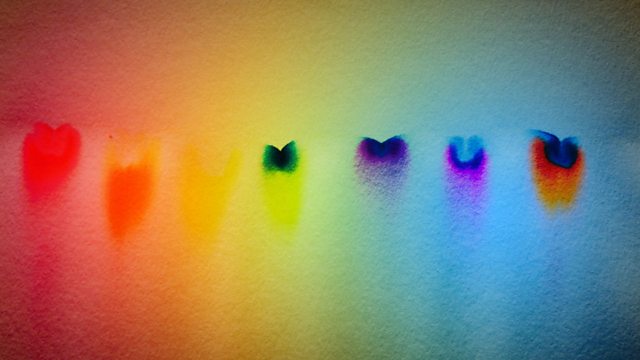Chromatography
Melvyn Bragg and guests discuss chromatography as a means of separating mixtures, widely used when testing water and air quality, in forensics and drug manufacture.
Melvyn Bragg and guests discuss the origins, development and uses of chromatography. In its basic form, it is familiar to generations of schoolchildren who put a spot of ink at the bottom of a strip of paper, dip it in water and then watch the pigments spread upwards, revealing their separate colours. Chemists in the 19th Century started to find new ways to separate mixtures and their work was taken further by Mikhail Tsvet, a Russian-Italian scientist who is often credited with inventing chromatography in 1900. The technique has become so widely used, it is now an integral part of testing the quality of air and water, the levels of drugs in athletes, in forensics and in the preparation of pharmaceuticals.
With
Andrea Sella
Professor of Chemistry at University College London
Apryll Stalcup
Professor of Chemical Sciences at Dublin City University
And
Leon Barron
Senior Lecturer in Forensic Science at King's College London.
Last on
LINKS AND FURTHER READING
听
READING LIST:
Daniel C. Harris, Quantitative Chemical Analysis (W. H. Freeman & Co Ltd, 2015)
Lloyd R. Snyder, Joseph J. Kirkland, John W. Dolan, Introduction to Modern Liquid Chromatography (Wiley, 2009)
Ferenc Szabadvary, History of Analytical Chemistry (CRC Press, 1993)
听
Credits
| Role | Contributor |
|---|---|
| Presenter | Melvyn Bragg |
| Interviewed Guest | Andrea Sella |
| Interviewed Guest | Apryll Stalcup |
| Interviewed Guest | Leon Barron |
Broadcasts
- Thu 4 Feb 2016 09:00大象传媒 Radio 4
- Thu 4 Feb 2016 21:30大象传媒 Radio 4
Featured in...
![]()
20th Century—In Our Time
Browse the 20th Century era within the In Our Time archive.
![]()
19th Century—In Our Time
Browse the 19th Century era within the In Our Time archive.
![]()
Science—In Our Time
Scientific principles, theory, and the role of key figures in the advancement of science.
In Our Time podcasts
Download programmes from the huge In Our Time archive.
The In Our Time Listeners' Top 10
If you鈥檙e new to In Our Time, this is a good place to start.
Arts and Ideas podcast
Download the best of Radio 3's Free Thinking programme.
Podcast
-
![]()
In Our Time
Melvyn Bragg and guests discuss the ideas, people and events that have shaped our world.



